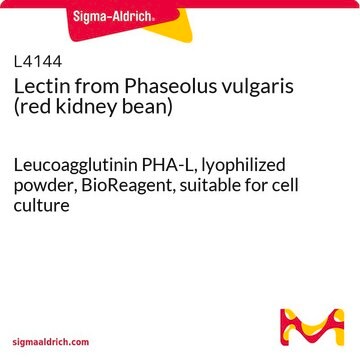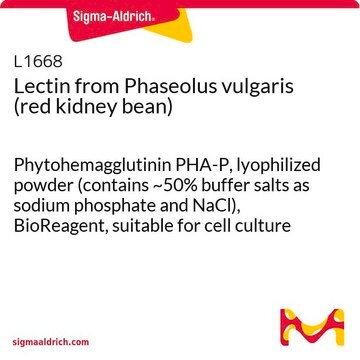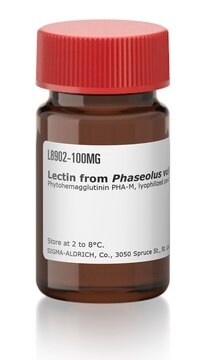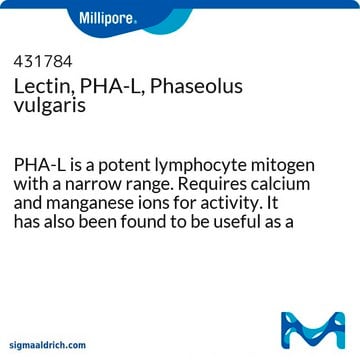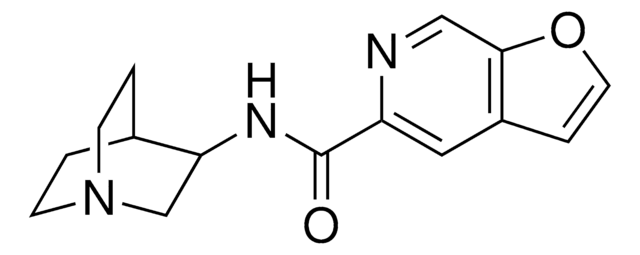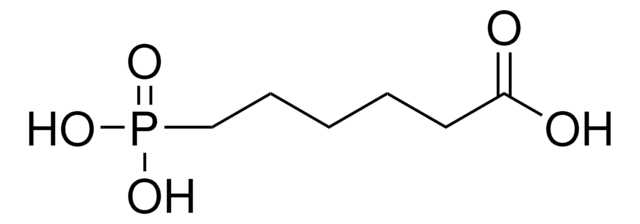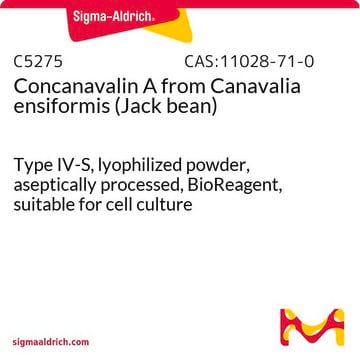L2769
Lectin from Phaseolus vulgaris (red kidney bean)
Leucoagglutinin PHA-L, lyophilized powder
Synonym(s):
Phaseolus vulgaris agglutinin, PHA
About This Item
Recommended Products
biological source
Phaseolus vulgaris
form
lyophilized powder
potency
erythroagglutination activity (Does not agglutinate a 2% suspension of human erythrocytes at <62.5 μg lectin/ml.)
≤1.0 μg/mL leucoagglutination activity
≤5 μg/mL mitogenic activity
composition
Protein, ≥60% biuret
impurities
salt, free
storage temp.
2-8°C
Looking for similar products? Visit Product Comparison Guide
General description
Application
- as a positive control in ELISPOT (enzyme-linked immunospot) assay
- to induce Th2 polarization for T-cell differentiation in vitro
- as controls in the lymphocyte proliferation assays
Biochem/physiol Actions
PHA-E is not blood group specific, but agglutination can be inhibited by certain oligosaccharides. PHA-P is the protein form of PHA prior to separation and purification of erythroagglutinin and leucoagglutinin. PHA-M is the mucoprotein form. Conjugates are prepared from the corresponding purified lectins.
Preparation Note
Analysis Note
Storage Class Code
11 - Combustible Solids
WGK
WGK 3
Flash Point(F)
Not applicable
Flash Point(C)
Not applicable
Personal Protective Equipment
Certificates of Analysis (COA)
Search for Certificates of Analysis (COA) by entering the products Lot/Batch Number. Lot and Batch Numbers can be found on a product’s label following the words ‘Lot’ or ‘Batch’.
Already Own This Product?
Find documentation for the products that you have recently purchased in the Document Library.
Customers Also Viewed
Our team of scientists has experience in all areas of research including Life Science, Material Science, Chemical Synthesis, Chromatography, Analytical and many others.
Contact Technical Service
